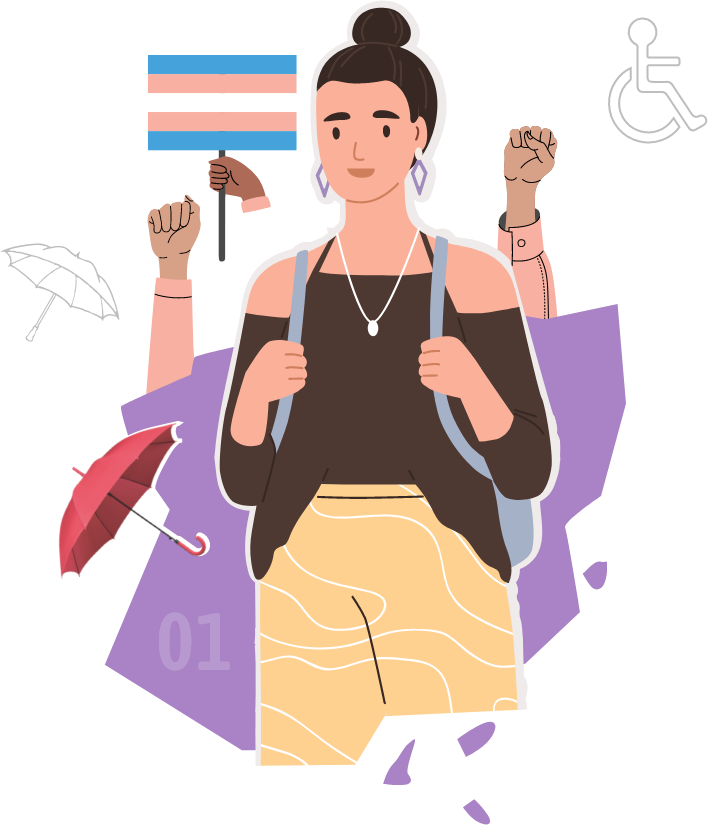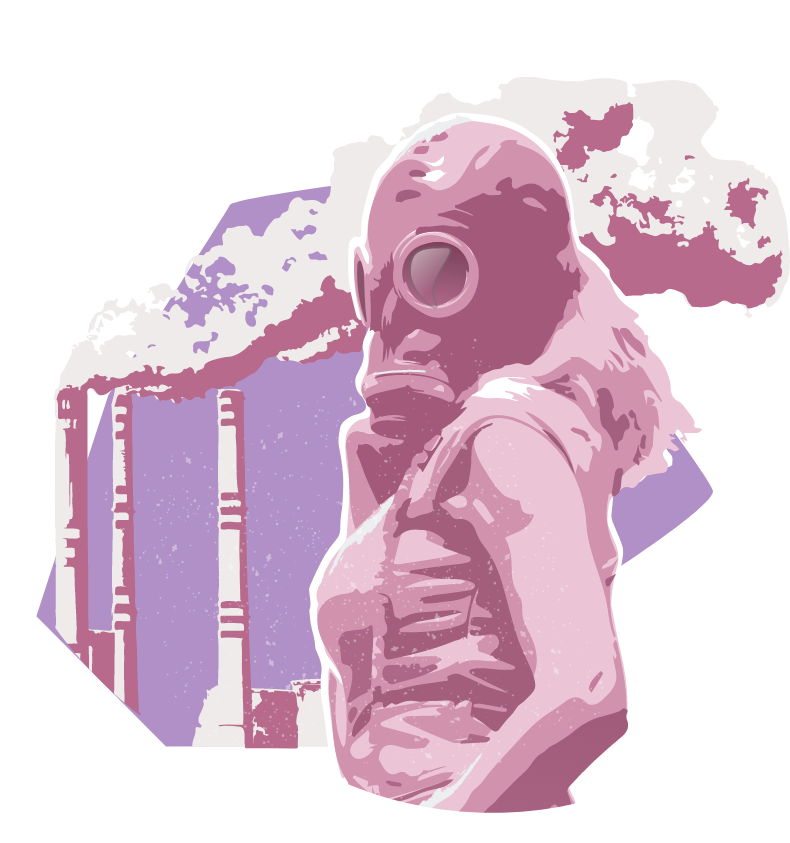



The program was created specifically to support emergency activities and women’s groups in crisis situations due to the COVID-19 pandemic. Most of the 33 funded projects aimed to provide comprehensive information about the pandemic, as well as disinfectant solutions, and various types of medical services to the following groups of women: IDP women, single mothers, victims of violence, women with multiple children, retired women, disabled women, veterans, women living near the occupation line, women whose families lost a primary breadwinner, socially vulnerable, unemployed women, women representing different ethnic groups and transgender people. Part of the projects was focused on mitigating increased risks of domestic violence and violation of labor rights.

The projects funded under the program aimed to: Increase awareness and sensitivity of specialists working with homeless children on sexual and reproductive health and rights; Finding psychological and legal support for women victims of discrimination in Batumi. Personal Data Protection, creation of handbook on the COVID-19 Pandemic and New Reality. Increasing access to information on sexual and reproductive health and rights for girls and women with visual impairment and low vision. Provide comprehensive and reliable information to women and girls living in mountainous Adjara about modern long-term and permanent contraceptives, family planning, pregnancy, safe and legal termination methods, medical service standards, and patients' rights.








The projects funded under the program managed to: Support and empower HIV-positive, queer, disabled women. Create safe spaces in different regions. Create informational videos related to women's sexual and reproductive health. Teach different skills to women, such as making paper from waste paper.


The projects funded under the program aimed to: Promoting the development of the Roma feminist movement Holding a public dialogue on women's rights in a place that is traditionally not dedicated to such conversations. In this case - in Kutaisi village buses. Establish a professional network of female employed and temporarily unemployed social workers to monitor labor rights. Feminist analysis of conservative narratives prevalent in the media and raising the awareness of adolescents and young adults between the ages of 14 and 24 through podcasts on women’s double labor. Creating equal opportunities and conditions for girls and women with disabilities in terms of granting status in four municipalities of Kakheti and Guria (Ozurgeti, Chokhatauri, Telavi, Lagodekhi). Increasing the knowledge of prosecutors and judges about sexual offenses.







Under the program, 17 trainers were trained on women's labor rights. They consult on projects supported under the program and conduct training in Kvemo Kartli and Imereti. Following the training, seven initiative groups and organizations received small grants. The goal of their projects is: Legal and socio-economic empowerment of women employed in the service sector in Imereti municipalities. Study and evaluation of gender policy in all seven municipalities of Kartli, both in the public and private sectors. Raising the awareness of employees and employers about women's labor rights and gender equality. Under the same program, Job Equality, a platform for raising awareness of labor rights was created. Information videos, comics, and documentaries were produced on maternity leave, unequal pay, harassment in the workplace, breaches of working conditions and other important issues. At the beginning of the pandemic, women's activist groups and NGOs issued an announcement regarding the violations of women's labor rights in Georgia under the state of emergency due to the COVID-19 virus.

As a result of the projects funded under the program, the level of awareness of preschool teachers about green issues has increased. The needs of women living in the vicinity of large enterprises were studied in Rustavi and the improvement of their living standards was supported. Women were introduced to energy-efficient technologies, single mothers and socially vulnerable families were given energy-efficient stoves, which can significantly improve their living conditions. Work has begun to reduce chemical toxicity in the greenhouses of eastern Georgia, and in the Guria region - to replace the so-called \"chechmas\" with sterile, biologically clean toilets. Women in Abasha Municipality have started learning waste management, as well as producing compost and firewood oven, which aims to reduce logging in the long run. At the same time, the composting method was popularized and put into practice in three villages of Zugdidi Municipality.


Under this program, our grantees managed to: Empower women employed in the biodiversity conservation field; Study of the number of heavy metals in the blood of the residents (children) of the areas near and further from Poti Port; Instal a virtual solar station connected to a 5 kW network in Kharagauli; Introduce and encourage ecofeminism and eco-activism; Create an online Sunday school for Azerbaijani and Armenian novice female teachers.

In 2020, we launched the fourth season of Feminstream, the main themes of which were women’s sexuality, the impact of the pandemic on women, traveling alone and women’s ecosystem, feminism seen from different perspectives, domestic labor, and the diaries of a feminist mother.

In 2020, the 8th Kato Mikeladze Award Ceremony was held online due to the pandemic. Activist Mariam Kajaia became the new winner of the award.

We awarded 3 educational scholarships named after Notio Lolua and conducted 3 integrated security workshops for female activists.
Campaign - Your Fight is Our Fight!
Women’s Fund, in collaboration with the Young Greens and WeResearch, has launched a campaign to address the challenges faced by feminist and queer activists, often manifested in hate speech and a hostile environment. The campaign “Your Fight is Our Fight!” was carried out in cooperation with the women’s funds of Germany, Armenia, and Ukraine as a part of the 16-day campaign against violence. The main topics covered were:

Hate Speech
The hate speech used against feminists and human rights activists is often sexist and xenophobic.

Security and trust
In the absence of guarantees of a dignified life and adequate social support, mutual trust and support become crucial.

Solidarity and care
Feminism is a struggle for the common good that goes hand in hand with the rights and equality of individual women, the solidarity, empathy, and care of different oppressed groups.

Hostile environment
The patriarchal system has always been particularly hostile to women and queers.
FINANCIAL INFORMATION
2020 INCOME
2149641 L
2020 EXPENSE
2287783 L
PROGRAMS
359204 L
ADMINISTRATION
627023 L
GRANTS
1301556 L
DONORS AND PARTNERS
NETWORKS













































